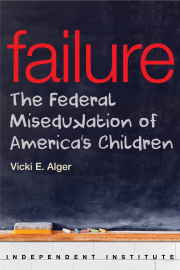A recent New York Times article spilled a lot of ink insisting tax-credit scholarships funnel public funds to private schools. It barely mentioned a U.S. Supreme Court decision last year that dismissed this argument out of hand, along with the faulty logic behind it. Moreover, it reflects an out-of-date perspective on education policy: The public isn’t concerned about bureaucratic turf wars; they want education programs that work and efficiently use taxpayer dollars.
Far from a radical new invention, the first tax-credit scholarship program was enacted in Arizona back in 1997. In the last fifteen years, eleven additional programs have been created across the country, benefitting approximately 82,000 students nationwide.
Under tax-credit scholarship programs individuals and/or businesses receive a credit against their state income taxes for donations to charitable organizations that award scholarships so children can attend the private schools of their parents’ choice. Critics like those quoted by the Times, call tax credit scholarships a “shell game”, or “neovouchers.”
Yet vouchers and tax-credits vary in important ways. Both programs enable students to attend public or private schools of their parents’ choice, but unlike tax-credit scholarships, vouchers are publicly funded, paid for with government appropriations.
It’s also worth noting that college students have used “vouchers” for decades, including Pell grants and GI Bill scholarships. And the Supreme Court upheld the constitutionality of vouchers for school-age children a decade ago in Zelman v. Simmons-Harris, ruling that public funds may support private educational choices so long as parents, not state governments, are doing the choosing.
The constitutionality of tax-credit scholarships is even clearer. Last year the U.S. Supreme Court dealt a decisive blow to opponents’ nearly 15-year-old crusade to end Arizona’s—and the country’s—oldest tax-credit scholarship program. Similar to the Times critics, opponents of Arizona’s programs insisted that private donations for scholarships are actually government funds, which of course belong to public schools.
The U.S. Supreme Court said in Arizona Christian School Tuition Organization v. Winn that assuming “all income is government property, even if it has not come into the tax collector’s hands... finds no basis in standing jurisprudence .” [Emphasis added.]
Taxpayers should rejoice. The idea that government knows best how to tackle every public problem should be soundly rejected not just in the Courts, but by the court of public opinion. It’s exactly this approach that has left our education system in the sorry condition that we see today. Empowering taxpayers and education consumers to direct education dollars to different providers isn’t a threat to education quality. On the contrary, it bolsters better quality through the true accountability that comes with choices and competition.
The claim that more education options hurt public schools also has no basis in reality. Research by Northwestern University professor David Figlio found that in response to competition from private schools for students, Florida public-school math and reading performance improved—something the Times failed to mention.
Tax-credit scholarship programs also save money for states, school districts, and taxpayers. The typical American public school spends more than $12,000 per student, while private-school tuition averages $8,500 nationwide. When students use tax-credit scholarships to attend private schools, there is more money for public schools to educate fewer students, which more than offsets the upfront general fund revenue loss from donors claiming tax credits.
Florida’s Office of Program Policy Analysis and Government, for example, found that the state’s tax-credit scholarship program saves $1.49 for every dollar it reduces state revenue. When was the last time an education program actually helped raise student achievement and generate a 49 percent return on investment?
Parental choice opponents will likely seize on the Times’ article to block adoption of tax-credit scholarship programs in other states—including New Jersey, which is currently considering enacting the Opportunity Scholarship Act (OPA) program for low-income children in failing schools.
Fifteen years of experience shows that tax-credit scholarship programs are constitutional. They help improve student achievement. They save money. Most important, tax-credit scholarships offer a lifeline to students trapped in schools that aren’t working for them. That’s the real story of this important education innovation. Shame on the so-called paper of record for trying to keep it from voters.








